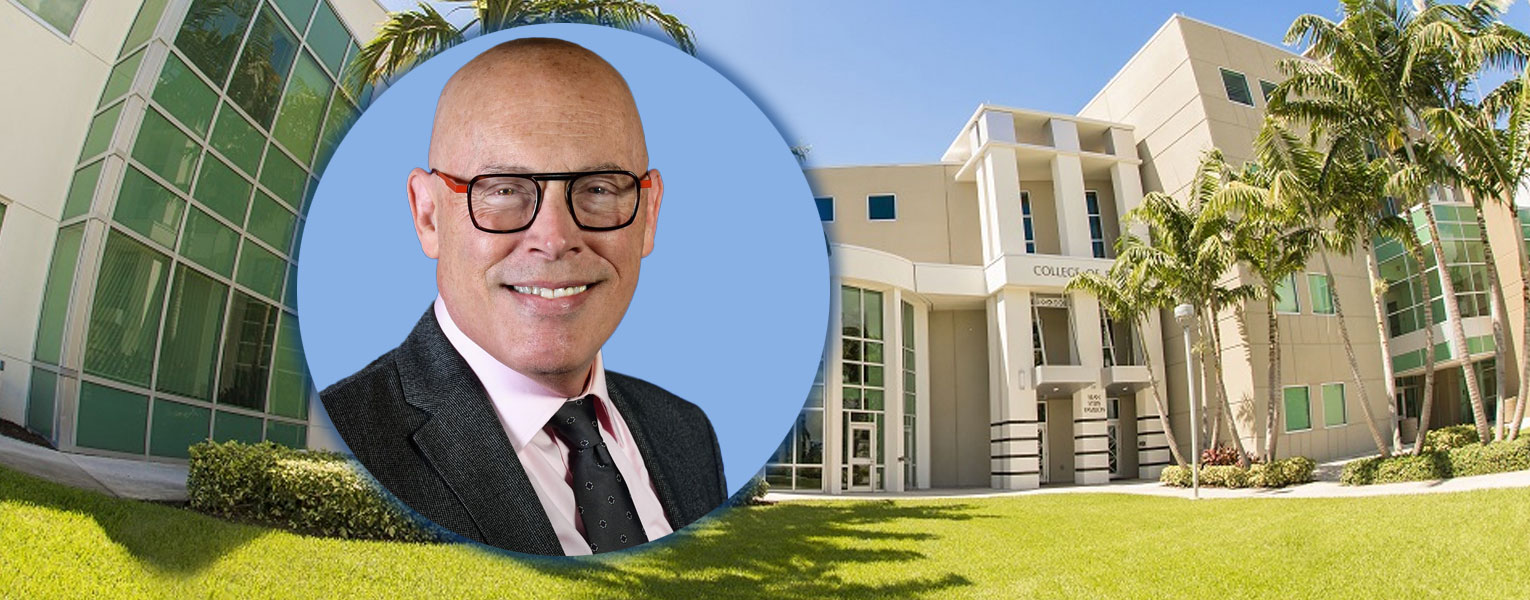2/28/2024
Faculty Spotlight: Michael Ryall, Ph.D.
Applying Math to Business Strategy
By Bethany Augliere
Founded in the streets of Quebec in 1984, Cirque du Soleil combined acrobatics, live music and dramatic narrative in a way that had never been done before, while also getting rid of live animal acts. “None of the individual things were new, they just rearranged them in unique ways that really hit,” said Michael Ryall, Ph.D. For him, it’s the perfect example for a case study analyzing business strategy.
Ryall, a new professor in the Florida Atlantic College of Business and policy director of the Madden Center for Value Creation, studies the competitive drivers of performance within an industry. “My specific interest is in competition between firms and trying to understand what firms should be doing to be successful and have good performance,” he said.
For a business to succeed, it needs to make a profit by capturing some percentage of the value it creates in every sale, said Ryall, who was one of the early pioneers who developed value capture theory, a stream of work that developed a general mathematical model to study business strategy.
For instance, if you're able to offer another business something that will allow them to bring in $1 million of additional revenue and you charge $200,000, you're capturing 20% of the value created by the transaction.
In his paper, titled “Value Capture in the Face of Known and Unknowns,” Ryall uses Cirque du Soleil and Apple iTunes as case studies to develop a mathematical model that incorporates unawareness on the parts of market agents. “What happens in economic transactions when someone is aware of something that someone else isn't aware of,” Ryall said. A common example would be the average person going to buy a car, and wondering if the car is a lemon or not, you don’t know but the seller does, he said. “This paper is important because it addresses complaints of many in my field that say economic models assume that all the people in that model know too much and they see too far forward.”
Ryall earned a bachelor’s in agricultural economics from North Carolina State University and a and a master of business administration in finance from the University of Chicago. After that, he worked in corporate finance and general management, including as the vice president of finance and managing director at both large firms and entrepreneurial ventures. “I was no Elon Musk, but by 30, I was managing a division of a Fortune 500 company.”
However, work in the corporate world eventually lost its luster for him, which led him to search for what to do next. After sleuthing through academic literature, he realized there was a lack of formalism in the field of business strategy. At the same time, he found himself intrigued with game theory, or how economic agents make decisions in interactive settings. He went back to school with the intent to formalize business strategy. “I thought, I'm going to go back, get a Ph.D. in game theory, and I'm going to mathematize the field of strategy,” Ryall said. “That was my insanely hubristic idea — but you’ve got to set your sights super high. So, he earned a doctorate in economics from the University of California, Los Angeles, in 1997.
After graduating, he held appointments at the University of Rochester, New York, the University of Melbourne, Australia and most recently, the University of Toronto in Canada. His research has been published in prestigious scholarly journals, including the Strategic Management Journal, Management Science, and the Academy of Management Review, among others. His research is diverse, extending into economics, game theory, causal inference, artificial intelligence and philosophy.
Just prior to arriving at Florida Atlantic, he won a $250,000 grant from Alfred P. Sloan Foundation to host two conferences on artificial intelligence. He also recently published a book called “Managing the Good Life,” a commentary on Aristotle’s Nicomachean Ethics that is aimed at business practitioners.
“The young people that I teach now are really endearing in their sincere desire to change the world for the better. I've been around for a while and I haven't seen this in any other generation,” Ryall said. “The problem that I find is that they don't know how to do that. As a mathematician, I describe it as ‘all velocity, no vector,’ you know, there's all this energy that just doesn't know where to go.”
Success in business might just start with a novel idea, like Cirque du Soleil, that other people aren’t aware of, said Ryall. It’s what you do with that idea that matters. “What are the implications for how much you reveal about your idea, or what it means for organizational performance? These are questions to which I try to provide some insights.”
If you would like more information, please contact us at dorcommunications@fau.edu.
